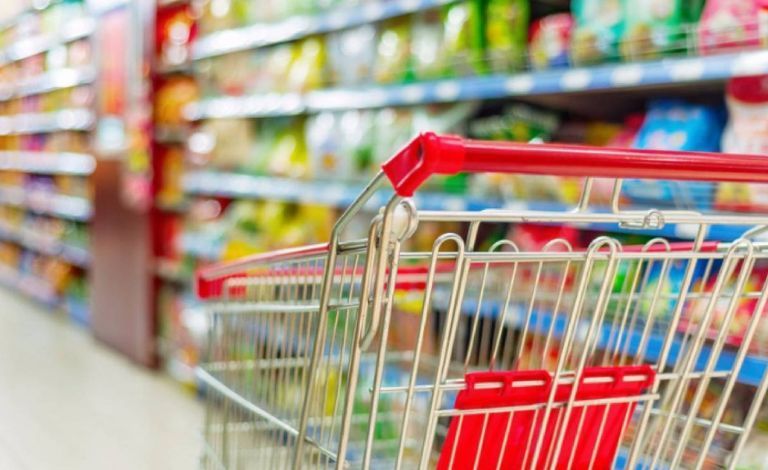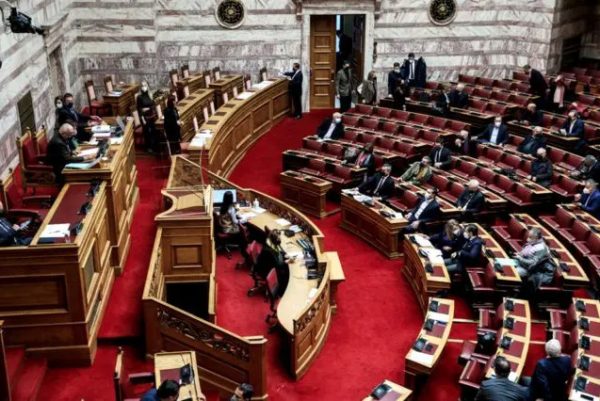
“A very dear Christmas” will be the wish this year from Greeks, who will be called upon – as everything shows – to put their hand deep in their pocket so that they can lay the Christmas table with traditional food. Without even being able to calculate how much more expensive this Christmas will be, the data announced last Friday by the Greek Statistical Authority give “a first taste”…
According to market participants, the rapid rise in energy prices in recent months, raw materials and transport has pushed production costs for all products that make up the festive table. In fact, in some cases, the increases that are noted are in double digits, with the result that it is estimated that the costs compared to last year can even reach 10%.
According to data from the Athens Central Market last Friday, the wholesale prices for domestic lambs range from 7.3 to 8 euros per kilo, while last year the price was between 5-6 euros per kilo, for goats from 7.8-8.5 euros per kilo (6.8 – 7 euros last year), for the Greek beef from 5.6 – 5.8 euros per kilo (4.6 – 5.6 last year) while for imported beef 5.3 – 5.9 euros per kilo (4.5 – 5.6 euros per kilo last year). The picture is similar in the fruit and vegetable market, where the average wholesale prices for potatoes were at 0.55 euros from 0.45 (last year), for cabbage and lettuce at 0.30 euros from 0.28 euros last year, chestnuts 3.8 euros per kilo from 3.5 euros last year, pomegranates 1 euro per kilo from 0.8 euros last year. There is an increase in the price of celery (0.8 from 0.75 euros last year), spinach, apples, tangerines and a number of other products.
Prices on the shelves of supermarkets have also caught fire. Basic items such as olive oil and seed oils, pasta, cheese, pastries, coffee are travelling upwards. It is indicative that the total of food and non-alcoholic beverages rose by 0.8% within a month (October / November 2021) according to the data of the Statistical Service, while according to market representatives the wave of increases has not finished. Indicatively, compared to last year, the increase in lamb meat is 21.3%, in olive oil 18.5%, in seed oils 16.7%, in poultry 5.6%, in confectionery 2.4%, in cheeses 3 , 5% and in chocolates 3.8%.
High feed costs and energy costs affect the entire food chain and the consumer table. In fact, the producers point out that if the government does not take drastic measures, next year will be even more difficult and the wave of price increases will be even worse in 2022, since no one can absorb the price increases.
And while price increases are coming, the big supermarket chains with selected offers are trying to win over consumers and put them in the buying process, earlier, either with percentage discounts on product groups or with 1 + 1 type offers, a practice that is expected to peak next week.
Latest News

DM Dendias: We talk With Turkey But We Always Bring Up Their Unacceptable Positions
Second and last day of closely watched conference, entitled 'Metapolitefsi 1974-2024: 50 Years of Greek Foreign Policy', also included appearances by PM Mitsotakis, Ex-PM Tsipras and PASOK leader Nikos Androulakis, among others

Rhodes Airport Tops Fraport Greece’s Regional Airports in 2024 Performance
According to Fraport's data, more than 35 million passengers (specifically 35.2 million) were handled by Fraport-managed airports during the 11 months.

European Central Bank Cuts Interest Rates by 25 Basis Points
It is the fourth cut of interest rates by Europe’s central bank, a move expected by the markets and financial analysts leading to the rate settling at 3%.

Airbnb: New Measures Add €600 in Extra Costs for Property Owners
Property managers face an immediate administrative fine of 5,000 euros if access to the inspected property is denied or any of the specified requirements are not met.

Economist: Greece Included in the Best Performing Economies in 2024
Meanwhile, Northern European countries disappoint, with sluggish performances from the United Kingdom and Germany.

EasyJet Expands Its Routes from Athens
The airline’s two new routes will be to London Luton and Alicante and they will commence in summer 2025.

Capital Link Forum Highlights Greece’s Economic Resurgence; Honors BoG Gov Stournaras
Capital Link Hellenic Leadership Award recipient, Bank of Greece Gov. Yannis Stournaras, an ex-FinMin, was lauded for his pivotal role during Greece’s economic recovery

Tourist Spending in Greece Up by 14%, Visa Card Analysis Shows
Greece’s capital Athens emerged as the most popular destination, recording a 17% increase in transactions with Visa cards, surpassing even the cosmopolitan island of Mykonos.

Inflation in Greece Unchanged at 2.4% in Nov. 2024
The general consumer price index (CPI) posted a 0.4% decrease in November compared to the previous month

2024 Christmas Holidays: Extended Shop Hours Schedule
The 2024 Christmas Holidays extended shop hours schedule commences on Thursday, December 12 and runs until the end of the year.

![Φυσικό αέριο: Δυναμικό come back του LNG στην Ελλάδα [γραφήματα]](https://www.ot.gr/wp-content/uploads/2023/01/OT_naturalgas-90x90.jpeg)












![Fraport: Πάνω από 35 εκατ. επιβάτες στα αεροδρόμια το 11μηνο – Πτώση στη Μύκονο [πίνακας]](https://www.ot.gr/wp-content/uploads/2022/06/fraport-90x90.jpg)


















![Φυσικό αέριο: Δυναμικό come back του LNG στην Ελλάδα [γραφήματα]](https://www.ot.gr/wp-content/uploads/2023/01/OT_naturalgas-600x474.jpeg)








 Αριθμός Πιστοποίησης Μ.Η.Τ.232433
Αριθμός Πιστοποίησης Μ.Η.Τ.232433